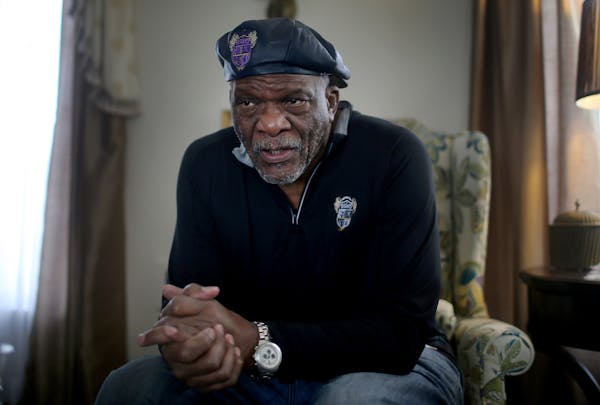Talks of concussions and CTE have dominated recent discussions about retired NFL players, and for good reason.
That said, former Vikings defensive lineman Carl Eller has quietly been focused for a long time on a more subtle challenge facing retired NFL players and other athletes: staying healthy, both mentally and physically, after you leave a game that has dominated your life and identity for so long.
I chatted recently with Eller for a story about a new program at the U of M aimed at helping retired NFL players get the medical testing they need to maintain physical and mental health. In the process, we talked a lot about what it means to be a retired athlete — a subject that has fascinated me for quite some time.
Eller, 74, had a Hall of Fame career. He credits remaining physically active and mentally active with keeping him in relatively good shape in nearly four decades since he last played. He still lives in the area and does a lot of walking and gardening to maintain fitness. In terms of remaining engaged and having a sense of purpose, Eller has found his purpose by helping other players find theirs.
He is the president of the NFL Retired Players Association and has helped develop programs aimed at assisting former players in their transition into retirement. Eller also recently taught an online course through the University of Minnesota on a similar subject.
"I see this as being part of that overall package when it comes to wellness, health and life balance," Eller said. "So much goes into that transition from playing to retirement. If you don't find something that you can engage yourself in mentally and psychologically, that can have repercussions."
Lifestyle changes after retirement can lead to obesity and leave former players with huge voids when it comes to the structure of their days, he said.
"I certainly support athletics as part of overall good health, but you can't just abandon being active after you retire. There's a real tendency to do that," Eller said. "The sport is so demanding and regimented. When players are away from it, they have an illusion that they're still healthy when really their health might be compromised."
The good news, Eller said, is that this problem is starting to become more recognized and supported — with Saturday's event at the U being one piece of the puzzle.
"We've been working with players to bring awareness and make some changes within the league and Players Association," Eller said. "One of the great things about the program at the University is we're getting great support from the Players Association and overall league management. They are starting to see the benefits of providing these services to retired players."
In heated western Minn. GOP congressional primary, outsiders challenging incumbent

Minnesota Sports Hall of Fame: A class-by-class list of all members

This retired journalist changed professional wrestling from Mankato

